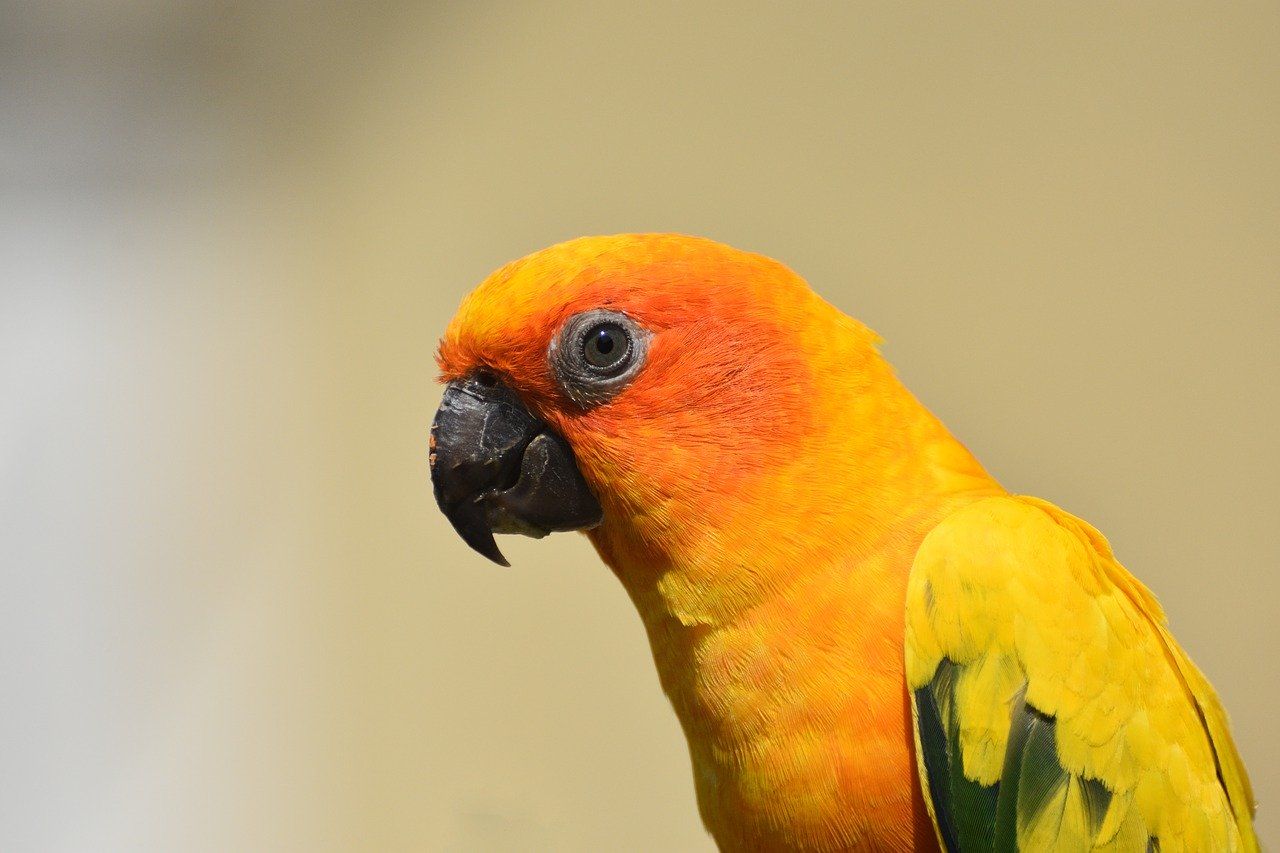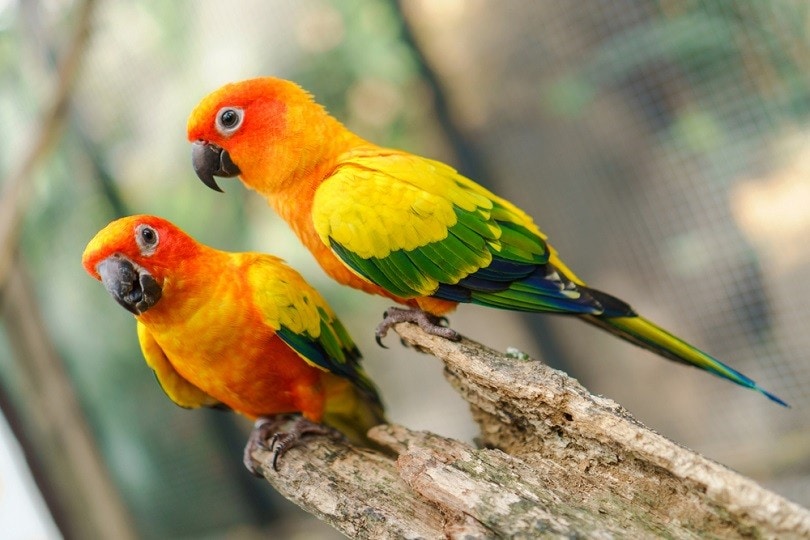
The term “conure” refers to a loosely defined group of small to medium-sized parrots who are native to Central and South America. “Conure” is an outdated term that describes members of the Conurus genus that is seldom used in the scientific field. They can be either large parakeets or small parrots and are typically very bright and beautiful. There are around 45 species of conures, but where do they come from?
Read on to learn more about these lovely little birds.
Where Do Conures Live?
Conures are native to Central and South America, with certain species being found only in some areas. For example, the jenday conure has a large range throughout northeastern Brazil. At the same time, the sun conure relives in a significantly smaller region of northern Brazil, southern Guyana, and southern French Guiana.
Green-cheek conures are typically found in the woodland areas of Brazil, Bolivia, Argentina, and Paraguay, while golden conures have a small range in the Amazon Basin south of the Amazon River.
Conures prefer different types of environments depending on their species. The dusky-headed conure likes semi-open habitats but is also found in coffee plantations. Blue-crowned conures prefer savanna-like habitats and woodlands but avoid dense, humid forests. Golden-capped conures prefer subtropical or tropical dry forests, dry savannah, or moist lowland forests.

Are Conures Found in Other Places of the World?
Absolutely. Conures can adapt to urban environments and have been observed in several places worldwide, though the origins of such colonies are not verifiable.
For example, a cherry-headed conure colony lives on the Hawaiian island of Oahu near the Diamond Head volcano. Several colonies of such conures also reside in the San Gabriel Valley northeast of Los Angeles. Both climates are perfect for conures as they are great environments for tropical plants that the birds can use to mimic their natural food supply.
Florida is also home to the nanday conure (sometimes known as the nanday parakeet). Though this bird is native to South America, where Brazil, Paraguay, Argentina, and Bolivia meet, they have been flourishing in the wilds of Florida for almost half a century now.
The Story of the Carolina Conure
The Carolina conure (or Carolina parakeet) is a now-extinct conure species indigenous to the United States. These small, green neotropical parrots were native to the Eastern Midwest and Plains states of America. It could be found from southern New York to Tennessee and as far west as eastern Colorado. The Caroline conure lived along rivers and swaps in old-growth forests. It was the only indigenous parrot in its range and one of just three parrot species native to the U.S.
It’s thought that the species became extinct partly because of the clearing of the forests they called home. The last known wild Carolina conure was killed in Florida in the early 1900s, and the last captive one passed away in 1918 at the Cincinnati Zoo.
Though the Carolina conure is no longer, it does have close living relatives: the nanday conure, sun conure, jenday conure, and golden-capped parakeet.
Final Thoughts
Most conures are native to Central and South America, though some species adapt well to urban environments. The one exception to this rule was the Carolina conure, which was indigenous to the United States.
Though these beautiful tropical birds are typically found in the tropical areas of South America, they’re a very popular species for bird keepers. Conures generally make fantastic pets and can live long lives in captivity if given the proper care.
See also:
- 5 Conure Bird Sounds & Their Meanings (with Audio)
- Jenday Conure: Personality, Pictures, Food & Care Guide
Featured Image Credit: Gary Chambers from Pixabay







